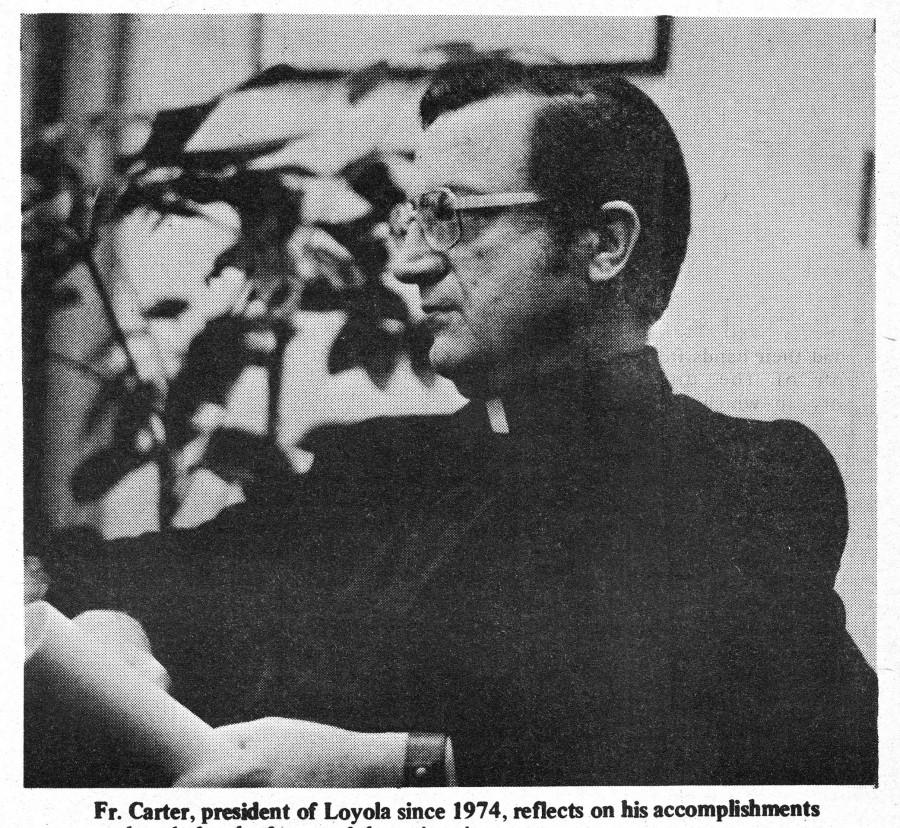The Rev. James Carter, S.J., Loyola’s longest standing president from 1974 to 1994, was scared for his life after accepting the position.
“During one of the first talks I attended as president, I heard that many presidents were dying of heart attacks due to the stress their hearts couldn’t handle,” he said.
Fortunately, Carter survived and “thoroughly enjoyed” his 20-year presidency, making numerous, lasting contributions to Loyola.
Carter said that his first priority as president was to increase the number of Jesuits on campus and to instill Jesuit character upon the university.
“Every college has a different mission, and it is the president’s job to make sure it stays true to that,” he said.
He also focused on fundraising and expansion of the school.
Carter said he is especially proud of the building of the parking garage, the Communications/Music Complex and the Recreation Complex, as well as laying the foundation for what is now Monroe Library, which has been nationally ranked in past years.
In 1984, the Dominican Campus was purchased and transformed into the Loyola Law School grounds. In 1989, Loyola sold the news station WWL, a complicated financial decision Carter said was challenging because of the very positive relationship between the university and the station. Carter also worked to pass a state bill which provides direct aid to private colleges.
In his first message to students as president, published in a May 27, 1974 Maroon article, Carter addressed student apathy.
“College exists to give (the student) an opportunity to learn about the world in which he lives and to learn how he can use his talents to improve the quality of life for himself and others. The apathetic are those without motivation,” he stated.
Anne Moss, Carter’s long-time administrative assistant and current director of Facilities Operations, considers this dedication to the Loyola, Jesuit and New Orleans communities the driving force behind Carter’s success and calls the time working with him as “many years of friendship.”
Edward Kvet, provost and vice president of Academic Affairs, agreed.
“He is a brilliant academic who understands all aspects of the academy, but maybe most importantly he is a kind and caring person who is totally committed to Loyola University,” Kvet said.
Carter is still what Father Kvet considers an “engaged colleague,” serving as president emeritus and teaching a faith and science class.
“I’ve always felt retirement is a fatal disease. If I have the ability to do something and to make a contribution, then I’m going to keep myself busy by doing that,” Carter said.
Jennie Gutierrez can be reached at jegutie2@loyno.edu








